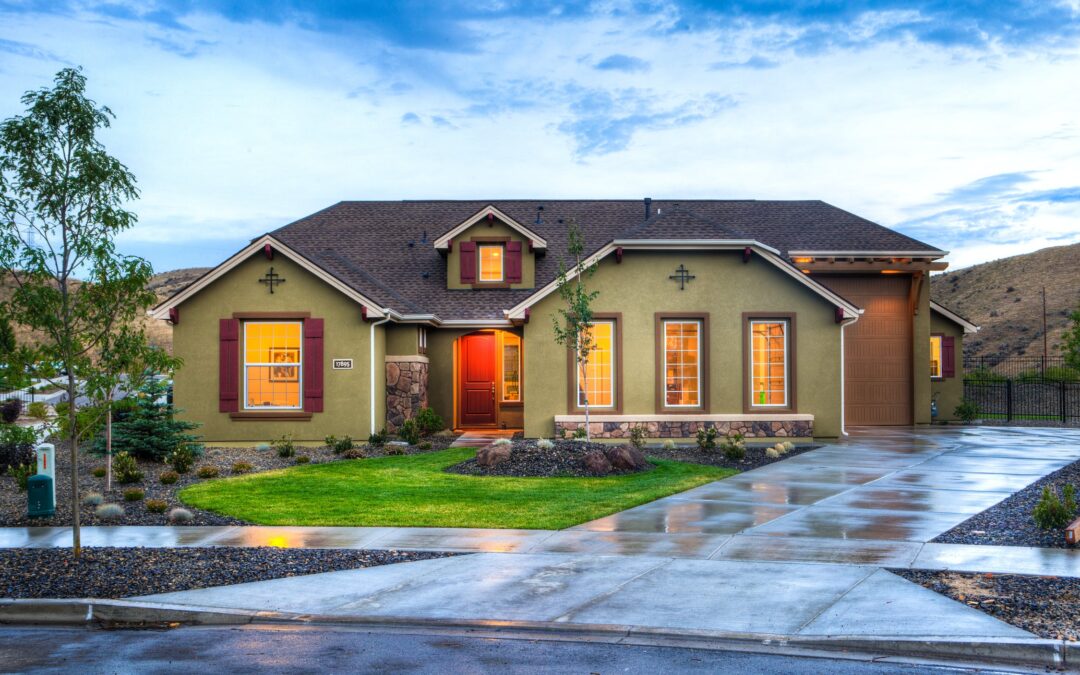Alternative asset class real estate refers to property in the form of land and/or buildings. Real estate investment is a great way to create wealth and make some real money. Besides adding diversification to your portfolio, real estate can improve your investment returns in the long term.
We’ll provide a full description of real estate investment and how it works. We’ll also help you understand how to invest in real estate and get the returns you deserve.
How Does Real Estate Investing Work?
Real estate investment is the method of purchasing, owning, renting, managing, and selling properties for profit. There are various investing methods, making it possible for even low-income people to invest in this asset class. Real estate generates considerable profit and has been an essential part of many successful investment portfolios for decades.
Investors can make money in real estate in different ways. But primarily, the appreciated value of a property over the long term and cash flow (the difference between the cost of owning and maintaining the home and the rent you charge) from rental income are the two main sources of income.
How real estate investing works for you depends chiefly on how you want it to work for you. When you want to invest in real estate, you should consider issues such as: how much capital you have, how soon would you like to access your money, what your financial objective is, how much risk are you willing to shoulder, how much work you want to put in, how much time you have, whether you want to build wealth or create quick cash, etc. Depending on your preference, a strategy in line with your needs can be devised.

How to Invest in Real Estate
Here are some of the most common ways people invest in real estate:
Investing in Your Own Home
Investing in your primary residence can be the first step. Paying off your home loan is one of the best long-term investments you can make. Investors take out a mortgage, make their monthly payments, and gradually build ownership in their home. Residential real estate has confronted many ups and downs over the years. However, in the long-run, appreciation does take place generally.
Many people who buy a house don’t consider themselves investors, but that’s what they’re doing. Amortization of your mortgage (paying down the loan that you took out to buy your home), natural appreciation (increase in the property value over time), and forced appreciation (adding things to the house that add to its value) are three ways that turn your home into an investment.
Investing in Rentals
Owning a rental property is one of the most labor-intensive methods to create additional income for individuals with DIY and renovation skills. In addition to taking advantage of the above-mentioned advantages of purchasing your own home, investing in real estate rentals takes advantage of an income component.
When the rent amount investors receive is higher than their expenses, the property will generate a positive cash flow. While investing in real estate through rental properties brings considerable profit, it also requires a great deal of effort on the investor. They can reduce some of these hassles by hiring a property management company, but this will cut into their returns. If you are looking for a lower risk strategy and a less hands-on approach when investing, rental properties may not be a suitable method for you.
House Flipping
Flipping means purchasing a reasonably priced house in need of repair, making updates/improvements, and then selling for a profit. If you love hands-on work, then go for it. This is one of the most time-consuming and costly ways to invest in real estate. But it also has the potential to produce huge gains.
Like other investments, house flipping is risky, and it’s not as easy as it looks. Updates and renovations may cost more than you think. Investors will also need building permits for renovations. They should be capable of estimating how much repairs will cost, which is not an easy thing to do.
The other risk of flipping houses is that the longer investors keep the property, the less money they make because they’re paying mortgages without generating any revenue. Investors should always be aware of the market value of the property on completion.
Buy, Rehab, Rent, Refinance (BRRR)
This method is a combination of fix/flips and rentals. The investor purchases a discounted property, remodels it, and instead of selling, finds a tenant. Once the owner has a tenant living in a property, it becomes easier to refinance. A regular bank won’t give the owner a loan for a short-term rehab project. After rehab, though, the investor will have an easier time finding a 30-year conventional loan when a tenant is already living in the property and paying rent.
Take Advantage of House Hacking
House hacking occurs when you purchase a multi-unit building, live in one unit, and rent out the rest. Most loan programs, including conventional and FHA loans, allow investors to buy a multi-unit property with one loan (lenders consider the property as owner-occupied). Your roommates or tenants pay a significant portion or all of your mortgage, taxes, insurance, upkeep, etc.
Multifamily properties aren’t the only house hacking option available. There are many ways to hack a house. You can earn extra income by renting a room or part of your home through Airbnb (or other similar sites).
You can also rent out part or all of your basement, garage, attic, an outbuilding on your property, a corner of your land, etc. Any of these rental arrangements can provide individuals with an extra income source. Businesses and people have all kinds of space needs. Sometimes they just require extra space to store their stuff, vehicles, etc.
Wholesaling Strategy
Wholesaling is very similar to fix and flip (though not as profitable) and is a favorite among new investors, especially ones who lack funds for a down payment or are risk-averse. You find a property; then, instead of getting funding for the deal, you assign the contract to another investor for a finder’s fee (usually between $2,500-$15,000 depending on the project specifics).
Investing in Commercial Real Estate
Investing in commercial properties such as office buildings, apartments, hotels, retail, warehouse, storage property, etc., is for experienced people with higher risk tolerance. You buy a property and rent it out to tenants for a profit. Investing in commercial property is generally more expensive and complicated, but can also be more profitable than investing in residential real estate.
For experienced investors who have enough capital, commercial properties bring remarkable gains. Appreciation on a commercial property is typically higher than a residential property.
Real Estate Investment Trusts (REITs)
Real estate investment trusts (REITs) make it possible for you to invest in real estate immediately, with as little money as possible. They are companies that purchase, operate, and/or finance real estate properties/projects.
REITs raise funds by selling stock shares and issuing bonds and use the proceeds to purchase and operate real estate assets like office buildings, shopping malls, apartment buildings, warehouses, etc. When individuals invest in REITs, they buy shares in a company, just as when they buy stocks. A REIT must distribute 90% or more of its profits to its shareholders as a dividend to maintain its REIT status.
REITs appeal to investors since they pay no federal income tax on the earnings. This effectively means higher returns. Real estate investment trusts are also the most liquid investment available (exchange-traded).
Real Estate Crowdfunding
Crowdfunding involves pooling capital with other individuals for a common objective. Crowdfunding occurs when each investor funds/owns a portion of the deal/property.
When profit is realized, investors will receive returns commensurate with their share (percentage of the investment). Crowdfunding corporations conduct all pertinent tasks related to finding the property and rehab work, maintenance, etc.
Crowdfunding is implemented via online platforms that provide a meeting ground for real estate developers and potential investors. People who are interested should check out these apps to find the right one to suit their needs. Some platforms may charge fees, and others require you to be an accredited investor. Keep in mind that crowdfunding investment is not liquid.
Real Estate Limited Partnership (RELP)
A real estate limited partnership provides investors with the opportunity to diversify their portfolio. It also allows them to merge funds with others to buy, develop, lease, and/or sell unaffordable properties independently.
They’re organized by a general partner, who handles the direct management of the properties. All other investors are limited partners. Like REITs, limited partnerships allow people to invest in larger, more complicated real estate deals with limited capital.
The structure and organization of RELPs are different from REITs. RELPs are a form of private equity, i.e., not traded on public exchanges. A well-managed partnership investing in successful deals can be very profitable. On the other hand, a poorly managed partnership can be quite damaging to investors.
Investing in Bare Land
A real estate investor can purchase bare land and build on it, purchase land with an existing structure, tear it down to build a new structure, add more structures to the property, etc.
Purchasing a Property in Distress
Investors can also purchase distressed properties (foreclosed, under threat of foreclosure, etc.) for less than market value (owners are desperate since they can’t afford the property).
Purchasing a Promising Property
Another strategy is to buy a property in an undeveloped area and wait for the area to grow. Once the population increases and development occurs, the investor can sell the property for a substantial profit.

Passive Real Estate Income
Passive income is typically a revenue stream not requiring a lot of legwork, whereby the investor doesn’t have to manage the investment directly (bonds, stocks, real estate, etc.). Passive income gives you some extra peace of mind.
If you are looking for a passive income stream, real estate can be one of the best options available. It is an alternative to traditional income (from a job) that brings you the freedom and provides a secure and independent financial future.
Passive Real Estate Investment
Passive real estate investing generates income without significant active participation. You can ask trusted individuals with in-depth knowledge of real estate to put your money to work. In essence, this is investing without substantial hands-on effort or active participation from the investor.
The term “passive” is misleading. Passive investing doesn’t mean you don’t have to do anything. It simply means that investors aren’t playing an active role. Passive investment needs putting in some work in advance. It takes time to plan and set up the passive investment, but eventually, you can earn a continuous income stream.
If you want to put your money to work in real estate but an active investment does not sound appealing, there are several ways you can invest without taking an active role.
Renting a Room or Part of Your Home
This option doesn’t always have to be a wholly hands-on investment – you can also make some passive income when you aren’t using your home. Some homeowners utilize this trick when they are away for extended periods.
Passive Income Via a Rental Property
Rental income, a trendy way to generate income, is always considered passive but can’t always be classified as entirely passive. It’s up to you how involved you want to be in the renting process. You can manage the property on your own and save considerable maintenance costs or hire a registered property management company for a 10-15% fee.
Remote Real Estate Ownership
When a property investor utilizes an online platform to research, find and purchase remote rental properties with tenants, property management, etc., already in place, the term remote real estate is used. It offers complete property ownership, meaning all rent (minus expenses) and appreciation is yours. Remote real estate investment makes it possible for investors to diversify their ownership across multiple areas to reduce particular market downturns risks.
Hard Money Lending
Hard money lending is another 100% passive real estate option. Investors who have sufficient cash for a fix-and-flip project but who are for whatever reason uninterested in doing all the chores involved can consider privately lending money to fix-and-flip investors in need of quick access to liquidity for funding their deal.
Tax Liens
The government reserves the right to seize a property when homeowners can’t pay taxes. To recoup the lost tax income, the government often auctions off the tax liens to investors who collect interest from them. Tax liens can bring upward of 12% or more in interest, a relatively substantial sum.
Be an Active Investor’s Silent Partner
You can be a silent partner and play a passive role to someone willing to do the legwork. This can be a win-win situation, allowing you to put your money to work in residential properties without having to do all the work, yet enabling the active investor/managing partner to pursue properties with capital.
Self-Storage Facilities
Self-storage facilities are recession-resilient commercial properties with storage rooms that provide customers with space constraints a safe place to store extra items they don’t need right away.
Self-storage facilities are in high demand and can be found almost anywhere in the US. Real estate investors can earn passive income by renting out self-storage units. Investors require a management team to run the facility, provide customer service, etc. Also, owners should be cognizant of security and insurance expenses.
That being said, growing demand, low unexpected expenses, and low construction costs are some of the key features of this fast-growing sector. Self-storage investments help investors increase their monthly cash flow and become financially independent.

Can I Get Rich by Investing in Real Estate?
People will always need a place to live or a place to store their belongings. The number of new properties built each year is a testimony to the growing popularity of the real estate market. Supply follows demand, and there is a continuing demand for shelter. The human population rarely decreases; hence, the need for housing increases year over year.
Real estate is a lucrative investment for several reasons. Not only does it allow investors to diversify their portfolio, but it will also enable them to earn passive income over a long period.
The biggest reason you should consider real estate investing is the potential for higher returns (compared to other asset classes such as stock & bonds, etc.). Even though the housing market has witnessed many ups and downs, it has never really declined over the long run. In fact, the average 25-year return for private commercial real estate properties has been approximately 9-10%.
If you buy a home, your property appreciates every year (3% average annual rate). It means your home will double in value in the 30-year duration of your mortgage.
Conclusion
Investing in real estate may be more accessible than you think. Not only does real estate generate ongoing passive income, but it can also increase in value over time.
Real estate is like any other business. It appears intimidating and complicated. Having money to invest in and working hard doesn’t guarantee success. You should have sufficient knowledge and expertise to succeed in generating above-market returns.
Keep in mind that being well-prepared before getting into real estate is a requisite. If you are interested to learn more about how to invest actively, passively, or with very little money, get started by referring to our site.





